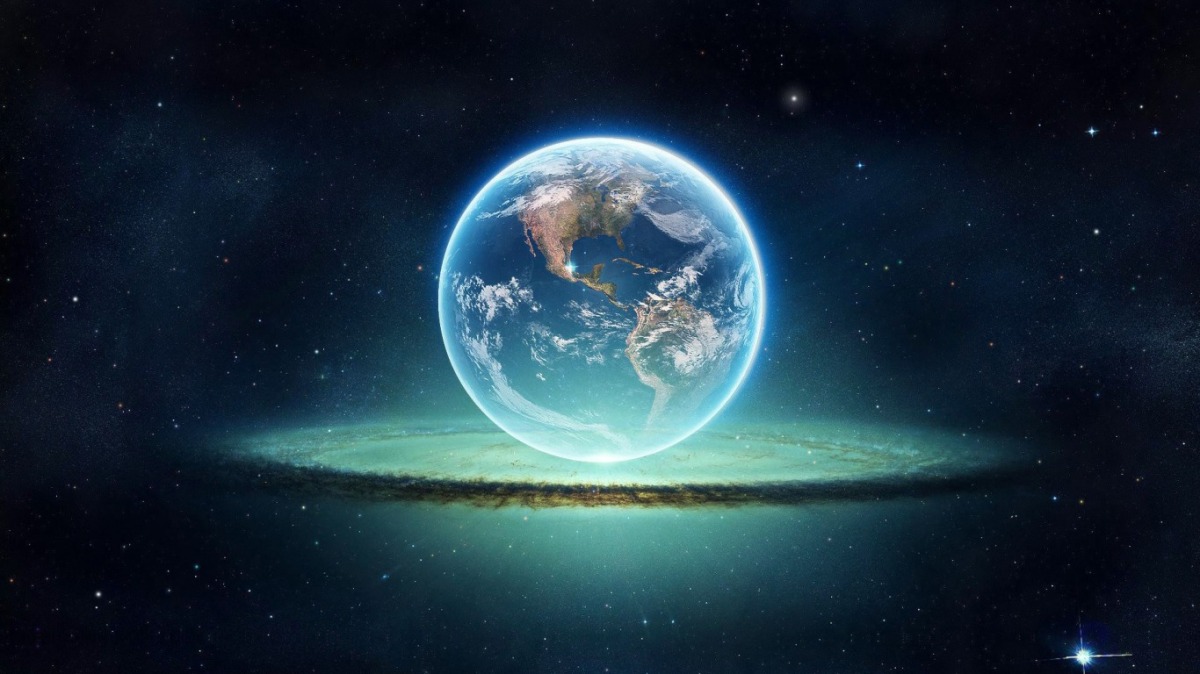The New Earth appears in several passages in the Bible, both in the Old and New Testaments. One of the weirdest, and hardest to reconcile with the rest of scripture, is found in Isaiah 65:17-25. I will emphasize that this is my take on this difficult passage and I have more questions than answers. Prophecy is often purposely unclear. Some aspects are meant only to be understood when either hindsight or the Holy Spirit unlocks its true meaning. For prophecies in Isaiah, the mode in which he received them could be a part of the issue. Isaiah’s prophecies read like verbal descriptions of visions. Visions that were presented almost like Powerpoint presentations. What I mean is that one “slide” could be the present, the next Jesus’ first coming, the last Judgment Day; and there is no sense of elapsed time. Hindsight shows you that there is elapsed time.
With respect to Isaiah 65, Isaiah may be interpreting the vision in terms he and his immediate readers would understand. We need the rest of scripture to give us “hindsight” into how to understand some the things that he writes.
The section starts with great clarity as to what it is about:
Behold I will create new heavens and a new earth.
This passage is not about Heaven. It is not about a “millennium”. It is about a to be created new universe with a new earth.
The former things will not be remembered, nor will they come to mind.
This may make you a little sad. I don’t think this means that we will forget about our relationships nor that the good God worked through us and for us will be forgotten. Rather the pain and difficulty inherent in our present time will become a memory that fades away.
But be glad and rejoice forever in what I will create, for I will create Jerusalem to be a delight and its people a joy. I will rejoice over Jerusalem and take delight in my people; the sound of weeping and of crying will be heard in it no more.
These words stand for themselves, but the next part is where it gets weird.
Never again will there be in it an infant who lives but a few days, or an old man who does not live out his years; he who dies at a hundred will be thought a mere youth; he who fails to reach a hundred will be considered accursed.
For people who probably had a life expectancy of 45 years, this might seem like quite an upgrade, but God has promised us “eternal” life. Verses about eternal life have to inform our understanding here. Will there be infants and old men? Living and dying? Being accursed? Sin and the wages of sin, should be eliminated with the death of our bodies and the removal of Satan’s kingdom from the system. No other passage in scripture would lend support to aging, dying, or being accursed. For this reason, I would have to consider this a literary device, or an interpretation of what Isaiah sees, to make a point–things will be changed for the good.
No longer will they build houses and others live in them, or plant and others eat. For as the days of a tree, so will the days of my people; my chosen ones will long enjoy the works of their hands. They will not toil in vain or bear children doomed to misfortune for they will be a people blessed by the LORD, they are their descendants with them.
Surely they understood that trees die. But in comparison it must have seemed that certain species lived forever. A question raised here is whether the reference to children and descendants are also a literary devices. Maybe. With resurrected bodies, it is possible that the new earth might include procreation. A passage in Matthew tells us that “in the resurrection” which means “in the new earth”, that we will be like angels neither married or given in marriage. Some take the leap to suggest that means we must be asexual in the new earth, but to be honest I don’t know what the angels are like. If the new earth is a return to Eden in a way, I would have to assume that Adam and Eve were going to procreate with or without the fall into sin. I think this topic remains a mystery for now.
Before they call I will answer, while they are speaking I will hear.
Like the Garden of Eden, God is there in visible form. He will live with us.
The wolf and lamb will feed together, and the lion will eat straw like the ox, but dust will be the serpent’s food. They will not harm nor destroy on all my holy mountain, says the Lord.
Some people want to read this metaphorically. I think it is probably quite straight forward. God’s plan is to redeem creation, not just people. While there is no reference to nature in Heaven, there is a reference here. Also like the Garden of Eden it is a death-free system without predators. A place of beauty and of peace. Could our pets be a part of this “nature”? We will see.


